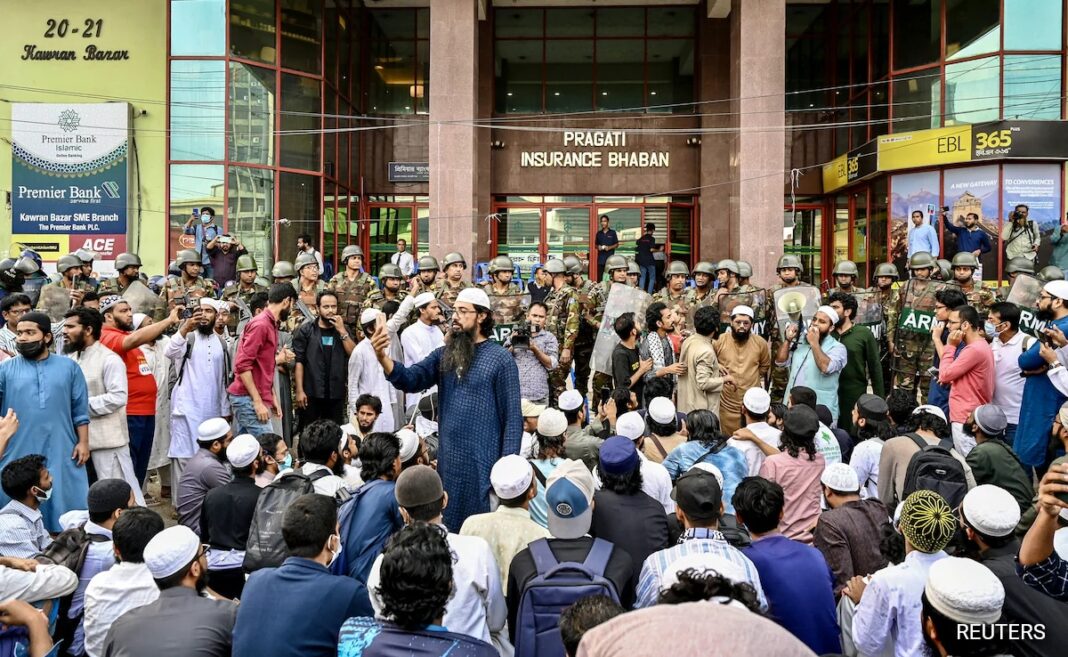[
]

Dhaka:
Protesters in Bangladesh on Monday surrounded the offices of one of the few remaining independent newspapers, Prothom Alo, in the latest mass demonstrations demanding that critical media close.
Government security forces guarding the building held off an angry crowd of around 300 people, a day after protesters were pushed back from storming the offices by a barrage of tear gas canisters.
The country’s largest Bengali-language newspaper faced significant challenges under the previous regime of ousted autocrat Sheikh Hasina, who fled a student-led revolution on August 5 to neighbouring India.
But protesters on Monday accused the newspaper’s journalists of having been supportive of Hasina, something Prothom Alo’s executive editor Sajjad Sharif strongly denied.
“We have consistently upheld the highest professional standards in our work and will continue to do so,” he told AFP, recalling a history of “defying harassment” stretching back decades.
The overthrow of Hasina has triggered a spate of protests in Muslim-majority Bangladesh, including a surge in Islamist groups emboldened to take to the streets after years of being suppressed.
Chanting protesters accused the daily of an alleged “anti-Islam” and “pro-India” bias, with many demanding its immediate shutdown.
Outside Dhaka, protesters also targeted the newspaper’s office in the city of Rajshahi, and marched through the streets of the port city of Chittagong.
It follows protests earlier this month that targeted Dhaka’s English-language Daily Star.
Protester Alif Bin Labib Shuvo, 20, a student injured during anti-Hasina protests in July, alleged that both Prothom Alo and the Daily Star seek to “destabilise” Bangladesh.
“If they don’t change their current strategy, they should be closed,” said Mir Farhad, 35, another protester.
Interim leader Muhammad Yunus has repeatedly insisted he wants media freedom.
Press watchdogs say dozens of journalists — seen by critics as having supported Hasina when she was in power — face police investigations in apparent retaliation for their past work.
At least four are in custody, accused of inciting the killing of protesters in the days before Hasina’s downfall.
Reporters Without Borders say as many has 140 journalists are facing police investigations into violence, calling it “systematic judicial harassment”.
The US-based Committee to Protect Journalists this month urged reforms to guarantee press freedom at “this critical juncture in the country’s history”.
(This story has not been edited by NDTV staff and is auto-generated from a syndicated feed.)


